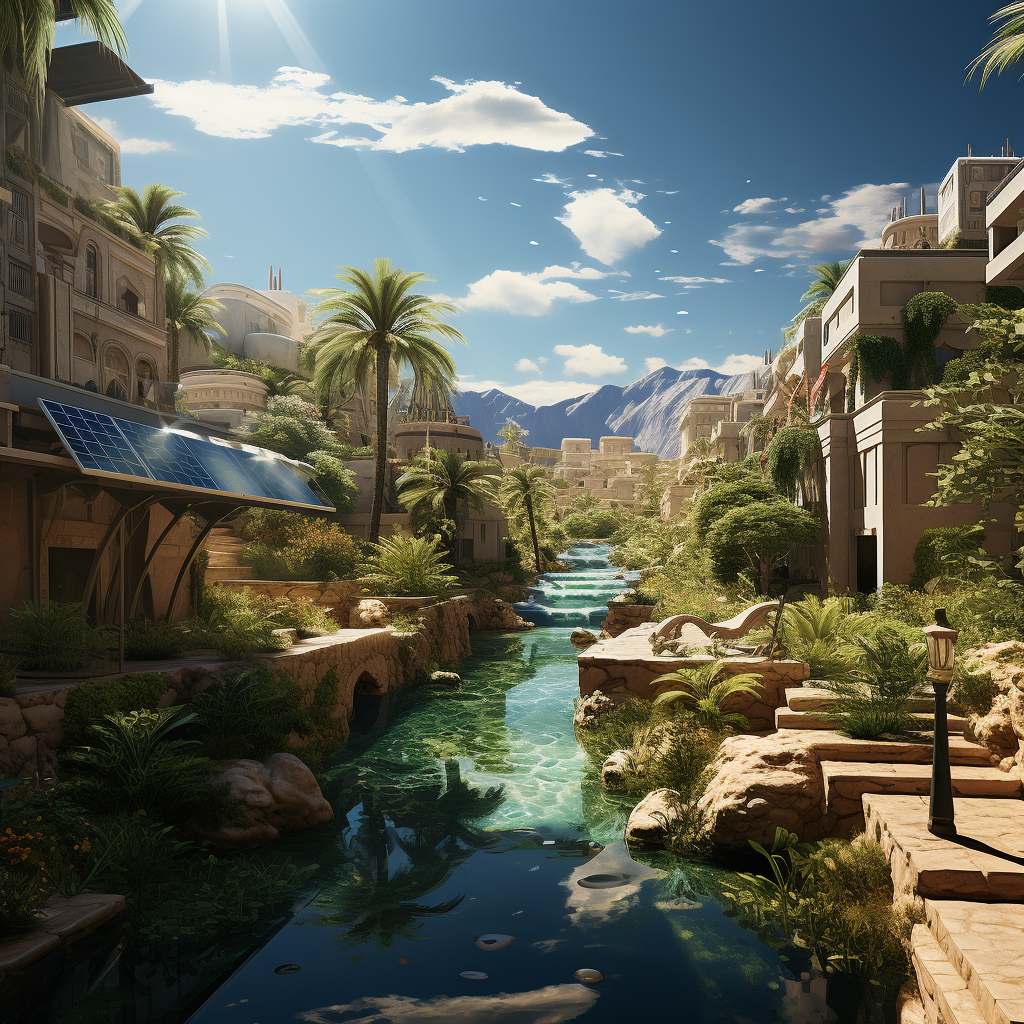
Harnessing Innovation: Technological Solutions for Water Conservation in the Middle East
Water, the lifeblood of civilizations, has been revered and celebrated throughout history. In the arid landscapes of the Middle East, water has always been a precious commodity. Today, with increasing urbanization, population growth, and industrial demands, the region faces an unprecedented challenge in water conservation. This article delves into the technological innovations that are paving the way for a water-secure future in the Middle East, with a spotlight on the United Arab Emirates (UAE).
1. The Middle Eastern Water Challenge
The vast deserts and dry terrains of the Middle East have always posed a natural challenge for water availability. With less than 1% of the world’s freshwater resources and home to some of the world’s most water-scarce countries, the region’s relationship with water is intricate. The burgeoning cities, flourishing industries, and expanding agricultural lands of countries like the UAE further strain the already limited water resources. 1
2. Modern Technological Solutions
- Desalination Technologies: The Middle East stands as a beacon in the realm of desalination. Transforming saline water into freshwater, desalination plants dot the coastlines of many Middle Eastern countries. However, while they provide a lifeline, they come with environmental and economic challenges, such as high energy consumption and brine disposal.
- Smart Water Management Systems: The digital revolution has not left water conservation behind. The MENA region is increasingly adopting tech-driven solutions, from smart meters that provide real-time water usage data to AI-driven systems that predict water demand and optimize distribution. These technologies not only reduce wastage but also empower consumers to be active participants in conservation efforts. 2
- Hydrogel Technology: A game-changer in water conservation, hydrogels are super-absorbent polymers that can retain large amounts of water. Particularly promising for agriculture, hydrogels reduce the need for frequent irrigation, a boon for water-scarce regions like Jordan. 3
- Wastewater Recapture and Treatment: Gone are the days when wastewater was discarded without a second thought. Modern treatment facilities in the Middle East are turning wastewater into a valuable resource, suitable for agricultural and industrial use, reducing the demand on freshwater sources. 4
- Sustainable Farming Technologies: Agriculture, a significant water consumer, is undergoing a transformation. Companies like Pure Harvest Smart Farms are integrating advanced technologies, from hydroponics to AI-driven irrigation systems, ensuring crops get the optimal amount of water, no more, no less. 5
3. Case Study: UAE’s Water Innovations
The UAE, a beacon of modernity and innovation in the Middle East, is at the forefront of water conservation technologies. From hosting global water summits to investing in state-of-the-art desalination plants, the country is leaving no stone unturned. One notable initiative is the UAE’s push towards solar-powered desalination, reducing the carbon footprint and making the process more sustainable. Collaborative projects, public-private partnerships, and a robust regulatory framework ensure that water conservation remains a national priority. 1
4. The Road Ahead
While technological innovations offer a glimmer of hope, the road to a water-secure Middle East is long and winding. Emerging technologies, from nanotechnology in water purification to the use of drones for cloud seeding, hold promise. Regional cooperation, knowledge sharing, and public awareness campaigns will play a pivotal role in ensuring these technologies are effectively integrated into the water conservation fabric of the region.
Conclusion
The Middle East, with its millennia-old civilizations, has always revered water. Today, as the region stands at the crossroads of modernity and tradition, the challenge is to harness technological innovations to ensure a water-secure future. The onus is on policymakers, industry leaders, and communities to come together, innovate, and pave the way for a sustainable tomorrow.
References:
This article provides a comprehensive and in-depth look at the technological solutions for water conservation in the Middle East, with a special emphasis on the UAE. The references and examples from the region make it both relevant and insightful for readers interested in the topic.
Footnotes
- How the UAE’s Water Innovations Are Helping to Build a More Sustainable Future
- 5 Ways Technology is Revolutionizing Water Conservation
- Hydrogel: A Promising Solution for Water Scarcity in the Middle East
- Creating Efficiencies for the Middle East’s Biggest Water Consumers
- Pure Harvest Smart Farms Adopts Honeywell Technology for Sustainable Farming in Middle East





